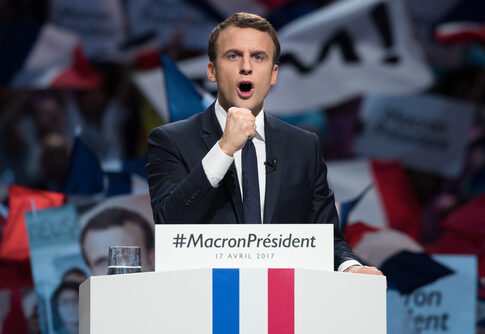France’s political landscape is in turmoil as Prime Minister François Bayrou’s government prepares to collapse. The French parliament passed a historic no-confidence vote, ousting Prime Minister Michel Barnier’s government. Macron appointed François Bayrou as new prime minister, but his administration is expected to fail. Political instability has led to economic concerns, with France’s borrowing costs surpassing those of Greece.
Historic No-Confidence Vote Triggers Political Crisis
In a stunning turn of events, the French parliament passed a no-confidence vote against Prime Minister Michel Barnier, causing his government to collapse after only three months in office. This was only the second successful no-confidence vote in the history of France’s Fifth Republic, the first occurring in 1962. The political upheaval has put President Emmanuel Macron under pressure to maintain stability and credibility.
The no-confidence vote was supported by an unlikely coalition of Marine Le Pen’s far-right Rassemblement National (RN) and the left-wing New Popular Front. This coalition arose in response to Barnier’s use of special powers to pass the budget without a vote, which sparked widespread outrage and opposition.
French President Emmanuel Macron faces calls from the farthest ends of the political spectrum to resign. They are likely to grow louder the longer he takes to resolve a political crisis. https://t.co/fIokx7qqQA
— The Wall Street Journal (@WSJ) December 5, 2024
Macron’s Leadership Challenged Amid Growing Discontent
Faced with mounting pressure, President Macron has appointed François Bayrou as his new prime minister. However, public opinion suggests that Bayrou’s administration may be short-lived. A recent poll found that a staggering 64% of respondents want Macron to resign, indicating growing dissatisfaction with his leadership.
“The mandate you have given me is for 5 years and I will exercise it until the very end” – Emmanuel Macron
Despite calls for his resignation, Macron remains defiant, vowing to stay in office until 2027. This stance has heightened public discontent and political tensions. The president’s attempts to form a new government, excluding both the far-right RN and the far-left, have been met with skepticism and resistance.
The French government collapse has turned the screws on President Emmanuel Macron.https://t.co/6gHdNyMB8z
— POLITICOEurope (@POLITICOEurope) December 5, 2024
Economic Concerns Amplify Political Uncertainty
The political crisis has sent shockwaves through France’s economy, raising concerns among investors and financial institutions. In a worrying development, France’s borrowing costs have surpassed those of Greece, which has traditionally been regarded as one of Europe’s most financially vulnerable countries. This shift emphasizes the gravity of the situation and the potential long-term economic consequences of ongoing political unrest.
In addition to these concerns, France may face credit downgrades and EU financial penalties as a result of its high debt and deficits. The lack of a 2025 budget, which resulted from the government’s collapse, has complicated the country’s financial outlook. Macron’s proposal to enact a “special law” to ensure government continuity and address budgetary concerns has elicited mixed responses.
Rise of the Far-Right and Political Fragmentation
Despite the chaos, Marine Le Pen’s far-right Rassemblement National has emerged as France’s most powerful political party. Despite the party’s controversial history and ongoing legal issues, this development represents a significant shift in the country’s political landscape. Le Pen, who has unsuccessfully run for president three times, is already preparing for another run in 2027.
“Le Pen’s conditions were constantly changing,” – a conservative member of Barnier’s government
Recent elections have resulted in political fragmentation, with the National Assembly divided into three major factions: Le Pen’s RN, Macron’s centrist Renaissance party, and a left/far left coalition. This division has made it increasingly difficult for any single group to form a stable government, resulting in the current stalemate.
Sources:


